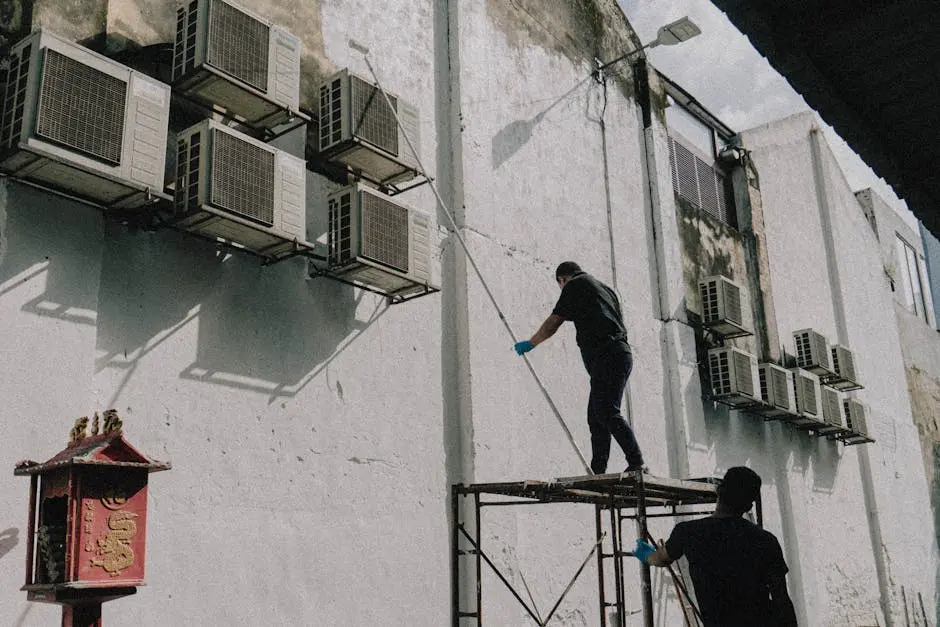Keeping your air conditioning unit in top shape can save you from unexpected breakdowns and costly repairs. In this blog, we will explore various strategies that can help you prevent the need for emergency air conditioning services, ensuring your home remains comfortable throughout the year.
1. Regular Maintenance Checks
One of the best ways to prevent unexpected emergency air conditioning failures is to conduct regular maintenance checks. These checks allow you to catch potential problems before they escalate. Schedule a professional inspection at least once a year—preferably in the spring, before the sweltering summer heat arrives. During this inspection, a technician will check key components such as refrigerant levels, electrical connections, and moving parts.
Additionally, by performing regular maintenance checks, you can keep the efficiency of your air conditioning system in the best condition. Not only does this prolong the lifespan of your unit, but it also ensures that your home remains at the desired temperature without overworking the system. A unit that runs efficiently consumes less energy, which is a win-win for your energy bill and the environment.
2. Change Your Air Filters
Changing your air filters regularly is a simple yet highly effective method of preventing emergency air conditioning issues. Clogged or dirty filters can restrict airflow, causing your unit to work harder than necessary. This extra strain not only increases your energy bills but can also lead to mechanical failures and emergency service calls.
Make it a habit to check the filters every month and replace them every three months, or more frequently if you have pets or allergies. A clean air filter ensures that your air conditioning system runs efficiently, leading to a cooler home and a longer lifespan for your unit. Furthermore, cleaner air filters can improve indoor air quality, keeping your family healthy.
3. Keep the Outdoor Unit Clean
Your outdoor air conditioning unit plays a crucial role in the cooling process. Keeping it clean and free from debris is essential to prevent the need for emergency air conditioning repairs. Regularly check for leaves, dirt, and other debris that may obstruct airflow or settle around the unit. This not only allows the system to work more efficiently but also ensures that it has proper ventilation.
Moreover, consider trimming any overgrown plants or shrubs that may be blocking the unit. Ensuring at least two feet of clear space around the outdoor condenser will promote optimal airflow and maintenance of cooling power. In addition, you can gently rinse the unit with a hose to remove dirt and grime. Just be sure to turn off the power before doing so to maintain safety.
4. Monitor and Manage Thermostat Settings
Effective monitoring and management of your thermostat settings can reduce the risk of emergency air conditioning needs. Smart thermostats, in particular, allow you to program desired temperatures and adjust settings remotely, leading to significant energy savings. By setting the thermostat only to activate when necessary, you prevent overburdening your system.
In addition, avoid setting the thermostat to extremely low temperatures—a common mistake during heatwaves. Instead, maintain a consistent and reasonable temperature to ensure the system operates smoothly. A few extra degrees can make a significant difference in energy efficiency without sacrificing comfort.
5. Seal Windows and Doors
Sealing windows and doors is a vital step in maintaining indoor coolness and minimizing the burden on your air conditioning system. Drafty windows can introduce hot air into your living space, forcing your AC unit to work tirelessly to maintain a comfortable temperature. Check for gaps and use weather stripping or caulk to seal any leaks.
Not only will this save you from emergency air conditioning situations, but it will also improve your home’s energy efficiency. Additionally, you should consider the use of blackout shades or thermal curtains to keep the heat out. These preventive measures can go a long way in ensuring that your air conditioning unit does not become overtaxed and remains in excellent working condition.
6. Insulate Your Home Properly
Proper insulation is another critical factor in maintaining a comfortable home and reducing the need for emergency air conditioning services. Insulation helps keep the cool air inside and the hot air outside. If your home is poorly insulated, you may find yourself cranking up the AC more often than necessary, leading to increased wear and tear on your unit.
Consider adding insulation to the attic, walls, and floors where gaps may exist. Also, pay special attention to areas such as basements and crawl spaces. Proper insulation can significantly lower your energy bills and increase the efficiency of your entire cooling system.
7. Invest in Smart Technology
In today’s tech-driven world, investing in smart technology for your air conditioning system can save you from future headaches. Smart thermostats, HVAC monitoring systems, and energy-efficient models can all help to keep your home cool without excessive usage. This advanced technology can predict your cooling needs and adjust accordingly, ensuring that the system doesn’t overwork itself.
Moreover, many smart devices come with alerts and notifications to keep you informed about your unit’s performance. This means you can catch minor issues before they develop into emergency problems. By upgrading to smart devices, you will not only enhance your home’s comfort but also create a proactive approach to maintenance.
8. Choose a Reliable HVAC Professional
Finally, choosing a reliable HVAC professional for your maintenance needs can make a world of difference when it comes to preventing emergency air conditioning situations. Look for certified experts who verify their credentials and have good reviews within your community. Regular maintenance by a professional will detect any existing issues and keep your unit operating efficiently.
Additionally, a trustworthy technician can provide recommendations tailored to your specific unit and local climate. Don’t hesitate to ask questions, and take preventive advice seriously. A good HVAC professional is an invaluable resource—not just for immediate repairs but for keeping your air conditioning running smoothly for years to come.
